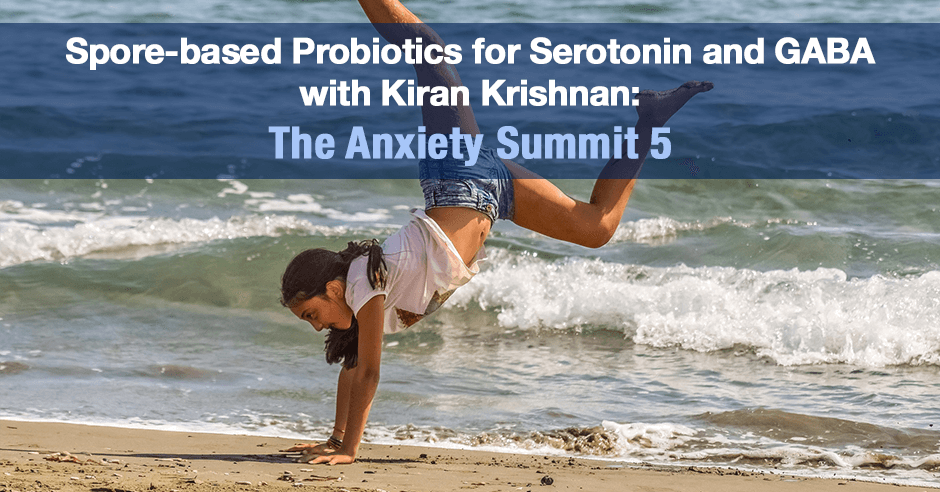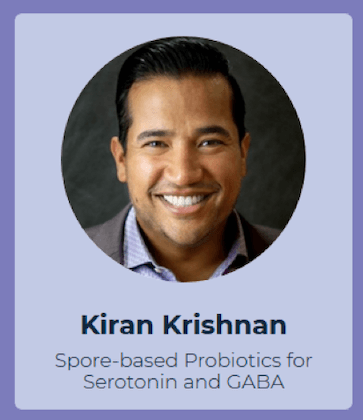Kiran Krishnan is one my guest experts on The Anxiety Summit 5: Gut-Brain Axis and our topic is: Spore-based Probiotics for Serotonin and GABA. What you’ll learn
- How are spore-based probiotics different
- Bacillus coagulans for depression with IBS symptoms
- How they increase carotenoids and serotonin, and reduce inflammation
- and more
Kiran starts by explaining what makes spore-based probiotics different from other probiotics:
in terms of what makes them different – to begin with these are organisms that have a unique capability of covering themselves in a thick calcified protein-like coating. So it’s armor, essentially, around the bacterial cell.
This allows the bacteria to, of course. exist indefinitely in the environment. In harsh conditions under UV, radiation and desiccation.These are typically conditions that would kill off a lot of the bacteria that live in your gut. Virtually most of the bacteria, 90% of them cannot exist in that type of environment.
But it also allows these bacteria to come in through the gastric system, through the oral route, and survive the gauntlet that bacteria have to go through just getting through the process of digestion.
He goes on to explain how they can survive the stomach acid, the bile salts and the pancreatic enzymes and how all this is “a very specialized function of these microbes” and how very few bacteria have this capability.
We talk about a number of specific strains of spore-based probiotics and how they directly impact mood, anxiety, your gut health and microbiome:
- bacillus coagulans is associated with bringing down depression, clinical depression, and at the same time alleviating IBS. And when you look at the correlation there it’s really interesting because IBS is associated with having a high risk for clinical depression.
- bacillus licheniformis…it tends to increase the growth of other beneficial bacteria. Because one of the characteristics about these spore formers is that they have the ability to do something called quorum sensing. They get into the gut and they breed the microbial environment. They can find the overgrown pathogens or opportunistic bacteria that are causing problems. They’ll sit next to them and they’ll produce up to twenty five different antibiotics in that little micro environment to bring down the growth of those pathogens.
I ask some pressing questions like:
- what have we seen in the research in terms of seeing changes in the microbiome if you do a stool test?
- how Megaspore is best used when someone starts out because there is a method of titrating up?
- why do you say other probiotics aren’t working? We do see some research showing that they are working
I find all of this quite fascinating and we do geek out a fair bit. He shares this: “what’s important to know is that these microbes had been producing these neurotransmitters and compounds before humans ever existed.”
Be sure to listen to Kiran’s wonderful interview to get a complete understanding of spore-based probiotics and how to use them to improve gut health and help with anxiety and mood issues.
You can listen to each of the interviews (and get transcripts) by purchasing The Anxiety Summit 5: Gut-Brain Axis.
If you’d like to give feedback or ask a question, please post in the comments section. I’d love to hear from you once you’ve listened in.
If you’re already familiar with spore-based probiotics please share how they have helped you. That way we can all learn.
If you’d like to ask a question, please post in the comments below.
I’d also love to hear from you once you’ve listened in to Kiran’s interview and the others.


